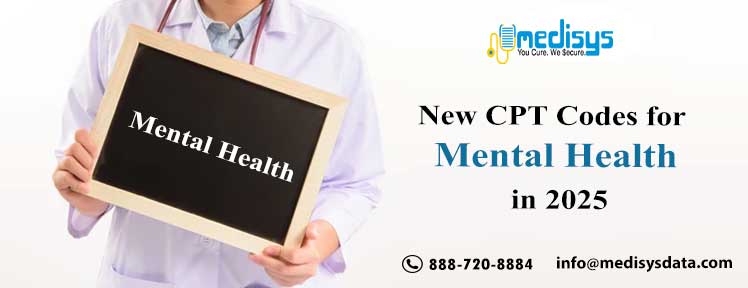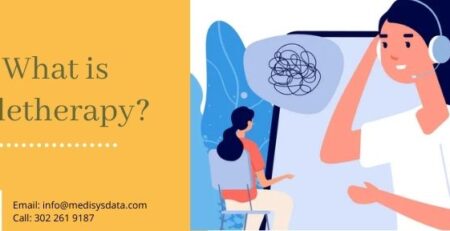As the healthcare landscape continues to evolve, 2025 brings a wave of changes in the coding and billing arena for mental health services. Providers, billing professionals, and administrators must stay on top of these modifications to ensure accurate billing and maximize reimbursements. In this detailed guide, we explore the updated CPT codes for mental health in 2025, discuss changes in psychotherapy and psychiatric evaluation codes, and outline strategies to avoid claim denials. We also offer practical advice for integrating these updates into your practice and resources for further training.
Understanding CPT Codes for Mental Health Services in 2025
The revisions reflect changes in clinical guidelines, technological advancements (including telehealth), and an enhanced understanding of patient care needs. By updating these codes, the American Medical Association (AMA) and other regulatory bodies aim to streamline the billing process and ensure that mental health services are accurately represented. Providers should take note of the following key points:
Updated CPT codes for psychotherapy 2025: Existing codes such as 90832 (30-minute sessions), 90834 (45-minute sessions), and 90837 (60-minute sessions) now include expanded telehealth guidelines and refined documentation requirements.
Changes to psychiatric CPT codes in 2025: For psychiatric evaluations, codes such as 90791 (Psychiatric Diagnostic Evaluation without medical services) and 90792 (Psychiatric Diagnostic Evaluation with medical services) have been updated with clearer clinical criteria.
Mental health billing codes 2025: In addition to revisions, a new code – 90868 – has been introduced for ultra-brief psychotherapy sessions (sessions lasting less than 20 minutes), which helps capture services that were previously billed under generic psychotherapy codes.
Key Updates and Revisions in the 2025 CPT Code Set
Updated CPT Codes for Psychotherapy
One of the most notable changes in 2025 is the refinement and expansion of existing psychotherapy codes, as well as the introduction of a new code to capture services that previously did not have a specific designation.
- 90832 (Psychotherapy, 30 minutes): This code continues to be used for brief psychotherapy sessions. In 2025, updated guidelines now incorporate telehealth-specific documentation requirements, ensuring that both in-person and remote sessions are accurately recorded.
- 90834 (Psychotherapy, 45 minutes): Similarly, this code has been revised to offer clarity on the expected duration and content of sessions. Providers should note the expanded criteria that now include hybrid sessions conducted via telehealth and in-person.
- 90837 (Psychotherapy, 60 minutes): Long psychotherapy sessions continue under this code, but with additional documentation standards to account for more comprehensive treatment plans.
- 90868 (Ultra-Brief Psychotherapy, <20 minutes): New in 2025, this code is designed for very short, focused psychotherapy sessions. This code recognizes that some patient interactions—especially in high-risk or crisis situations—require a formal billing code even when the session duration is significantly shorter than standard psychotherapy sessions.
Revised Family Psychotherapy and Crisis Intervention Codes
Updates have also been applied to family and crisis intervention services:
- 90846 (Family Psychotherapy without the patient present): Updated guidelines now clarify scenarios in which family therapy is conducted without the patient, ensuring proper documentation.
- 90847 (Family Psychotherapy with the patient present): This code’s revised definitions help differentiate it from 90846, especially in cases where the patient’s active involvement is critical.
- 90839 (Psychotherapy for Crisis Intervention, first 60 minutes): Adjusted to better capture the intensity and immediacy of crisis intervention services, this code now includes more detailed guidance on when its use is appropriate.
- 90840 (Additional 30 minutes of Crisis Intervention): Used in conjunction with 90839, this code has also been refined to help prevent misbilling and claim denials.
Updated Psychiatric Diagnostic Evaluation Codes
Psychiatric evaluations remain a cornerstone of mental health services. In 2025, the following codes have seen important updates:
- 90791 (Psychiatric Diagnostic Evaluation without medical services): The guidelines for this code have been updated to better delineate between initial assessments and follow-up evaluations, ensuring that patient progress is accurately tracked.
- 90792 (Psychiatric Diagnostic Evaluation with medical services): Revised to incorporate new clinical criteria, this code now includes more robust documentation standards to justify the inclusion of medical services during psychiatric evaluations.
Addressing Telehealth in the New Era
Telehealth has become an essential component of mental health care, and the 2025 updates provide specific guidelines for its billing:
- Coding and Billing for Mental Health Telehealth in 2025: Ensure your telehealth platforms are updated to include the necessary modifiers (such as 95 or GT) alongside your standard codes (e.g., 90834 or 90837). This guarantees compliance and appropriate reimbursement.
- Reimbursement Considerations: Telehealth sessions may have specific documentation requirements and reimbursement rates. Stay informed about payer policies to avoid claim denials.
Practical Examples of Using the Updated CPT Codes
To illustrate the impact of these changes, consider a few hypothetical examples:
Example 1: Brief Psychotherapy Session
- Previous Practice: A 30-minute session might have been billed using generic guidelines under 90832 without clear telehealth modifiers.
- 2025 Update: With enhanced documentation requirements, 90832 now includes a telehealth modifier (if applicable), ensuring that whether the session is in-person or remote, the service is accurately captured and reimbursed.
Example 2: Comprehensive Psychiatric Evaluation
- Previous Practice: An evaluation might have been billed under 90791 or 90792 without distinguishing between initial and follow-up evaluations.
- 2025 Update: Revised guidelines for 90791 and 90792 now specify the criteria for initial assessments versus follow-up evaluations, leading to more precise billing and improved tracking of patient progress.
Example 3: Ultra-Brief Psychotherapy Session
- New Practice in 2025: For a focused session lasting less than 20 minutes – perhaps conducted in a crisis intervention scenario – the newly introduced 90868 provides a specific code. This ensures that even very brief interactions are documented and reimbursed appropriately.
What Are the Most Important Changes to Mental Health Billing Codes in 2025?
Key updates include:
- Introduction of a new code (90868) for ultra-brief psychotherapy sessions.
- Revisions to existing psychotherapy codes (90832, 90834, 90837) to include telehealth modifiers and refined documentation standards.
- Enhanced criteria for psychiatric evaluations using 90791 and 90792, providing better differentiation between initial and follow-up assessments.
- Clarified guidelines for family therapy (90846, 90847) and crisis intervention (90839, 90840) services.
Where Can I Find Training on the 2025 Mental Health CPT Code Updates?
To stay current with the changes:
- Professional Associations: The American Psychiatric Association (APA) and the National Council for Behavioral Health frequently offer webinars, conferences, and training sessions on coding updates.
- Online Courses: The AMA and other professional organizations provide online modules dedicated to the 2025 coding updates.
- Consulting Services: Consider engaging coding consultants who specialize in mental health billing to provide personalized training and support.
Conclusion
The 2025 updates to mental health CPT codes represent a significant evolution in the field of healthcare billing and reimbursement. With refined guidelines for psychotherapy (90832, 90834, 90837), psychiatric evaluations (90791 and 90792), family therapy (90846 and 90847), crisis intervention (90839 and 90840), and the introduction of a new ultra-brief code (90868), these changes are designed to enhance accuracy, reduce claim denials, and better reflect the nuances of modern mental health care.
About Medisys Data Solutions (MDS)
At Medisys, we specialize in simplifying billing for mental health providers. With our in-depth understanding of Medicare policies, CPT coding, and compliance standards, we ensure accurate claims submissions and maximize your reimbursements. Our team stays updated on the latest regulatory changes, so you don’t have to. Partner with us to streamline your billing operations and focus more on patient care. Contact us today to learn how we can assist you with mental health billing in 2025 and beyond.
CPT® is a registered trademark of the American Medical Association. CPT codes and CPT modifiers are copyright content of the American Medical Association. All rights reserved.












